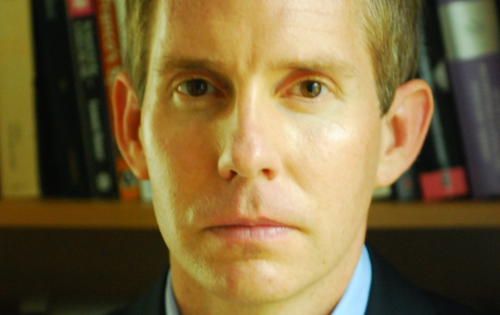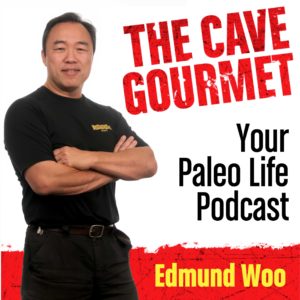Hamilton Stapell is a historian and Associate Professor of History at SUNY New Paltz, and the creator of one of the first college courses on ancestral health. He is also the Associate Editor at The Journal of Evolution and Health and the author of the published study “Modern Cavemen? Stereotypes and Reality of the Ancestral Health Movement,” which looks at stereotypes of those who follow the paleo lifestyle.
How did you become a historian on paleo?
I first got interested in evolution and health in 2002 when I stumbled across the book Health Secrets of the Stone Age by Philip J. Goscienski. This put evolution and health and nutrition together for the first time for me and it was a lightbulb moment.
4:30
I believe trying to align who we are genetically and evolutionarily with our environment is the future of health and medicine. There often seems to be a mismatch between who we are biologically, who we evolved to be, and the modern world in which we live. It’s a mismatch between what our genes expect us to be like and what our modern world is actually like. Those two things don’t often line up, and if we can work towards living in a way that’s more similar to our ancestral ways, that would lead to improved health outcomes.
I don’t think paleo is going to end but there was a lot of enthusiasm in 2013, but there were obstacles to it going mainstream. Cultural obstacles (dairy, grains, etc.,) are so deeply woven into society that it might seem very difficult to remove them. Bread, rice and corn are staples, and civilization was basically built because of agriculture, so to remove products of agriculture from civilization is a lot more difficult than some people realize. The second major obstacle is modern foods/carbs appear to be logically addictive so it’s hard to give up refined carbohydrates. Asking people to go paleo is asking them to give up 70% of what they eat on a daily basis (e.g. oils, flours, alcohol, etc.)—the 70% that’s most physiologically addictive, designed to be hyper-palatable by national corporations. They’re really good at designing foods that trigger your taste and satiety desires. The third obstacle is called social/value issues. Society in general values fun over long-term flourishing. We don’t focus on sacrificing for the future, but oftentimes that’s what’s necessary to focus on a paleo lifestyle. It takes effort and time, which runs counter to modern values of society.
20:00
Come to today and doctors refer patients to me for the paleo diet. Seven years ago it was 0% referral.
Paleo is becoming more accepted by more medical practitioners, but in terms of the mainstream medical community, there still seems to be a lot of resistance from professional medical organizations, although it’s multi-faceted, from protecting turf to disagreement over saturated fat or red meat consumption.
24:00
Knowing everything we’re up against in modern society, I still love the way a diet soda/drink tastes. I’m somewhat addicted. What can we do to become more in tune with the paleo lifestyle and to get fit? How can we combat that and embrace these different principles?
It’s complicated because we’re talking about behavior change. Why do people do it? Are they forced to do it because of their doctor or their spouse? It’s more than motivation and education. It comes down to finding what resonates with you.
27:00
If you connect with food or exercise or face-to-face communication, or being outside, it’s finding an entry point that works for you, having that work, feel better, (which leads to further change), and hopefully having that snowball. You turn off your computer at night, you wake up earlier and you feel better, you eat better, you want to exercise more, and ideally that’s how it should/would work.
Find out more at hamiltonstapell.com.
Podcast: Play in new window | Download



Recent Comments